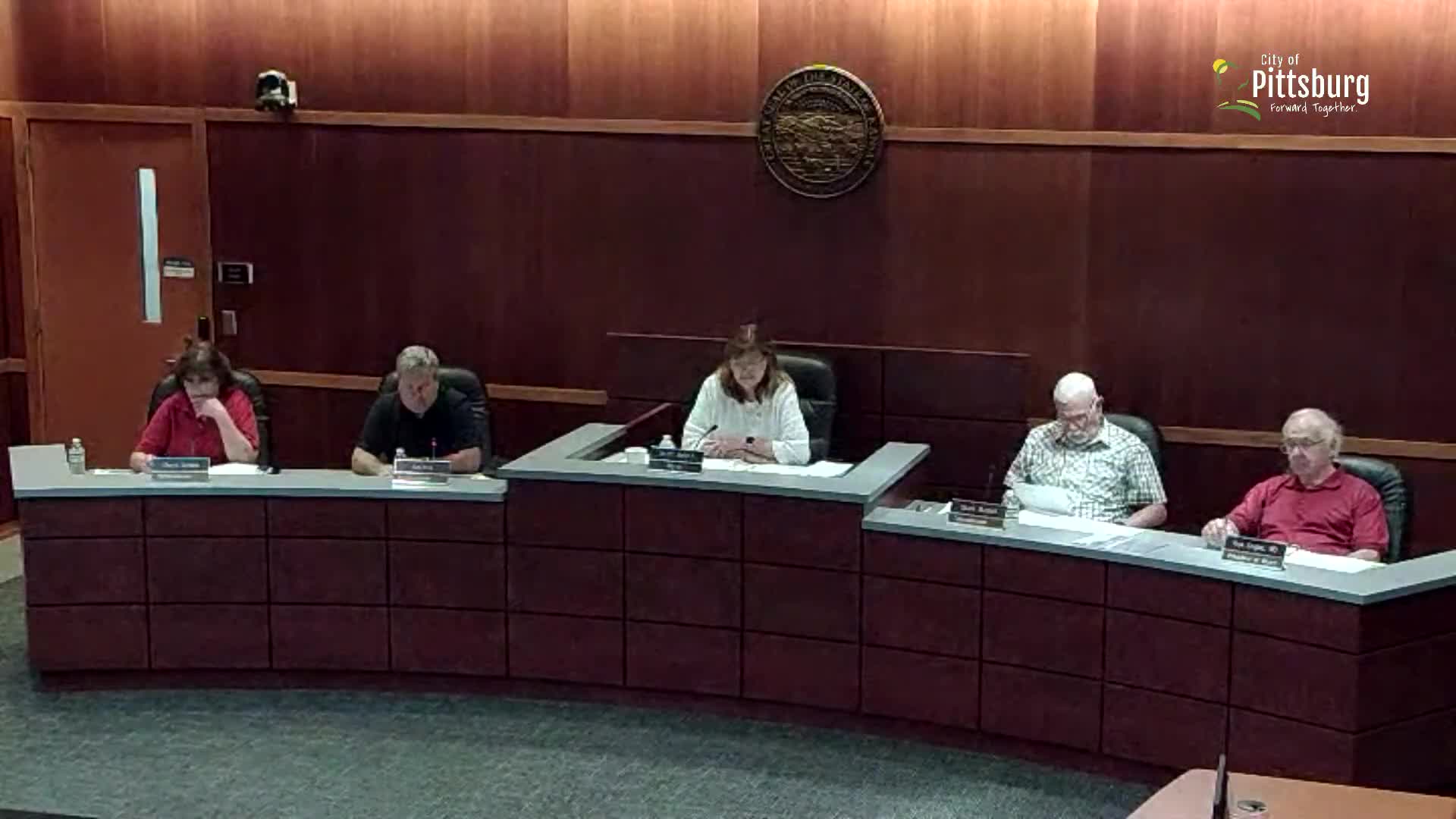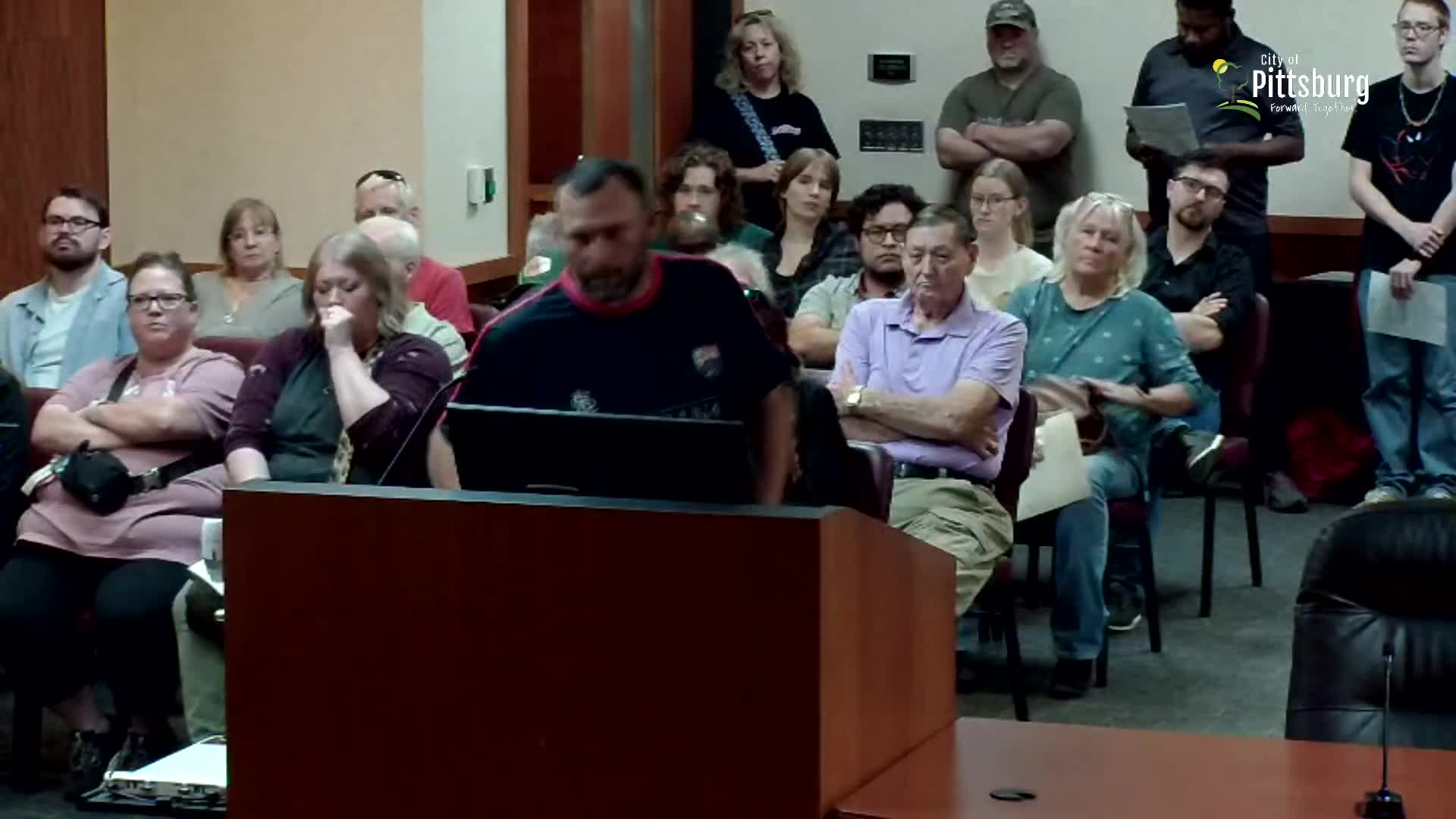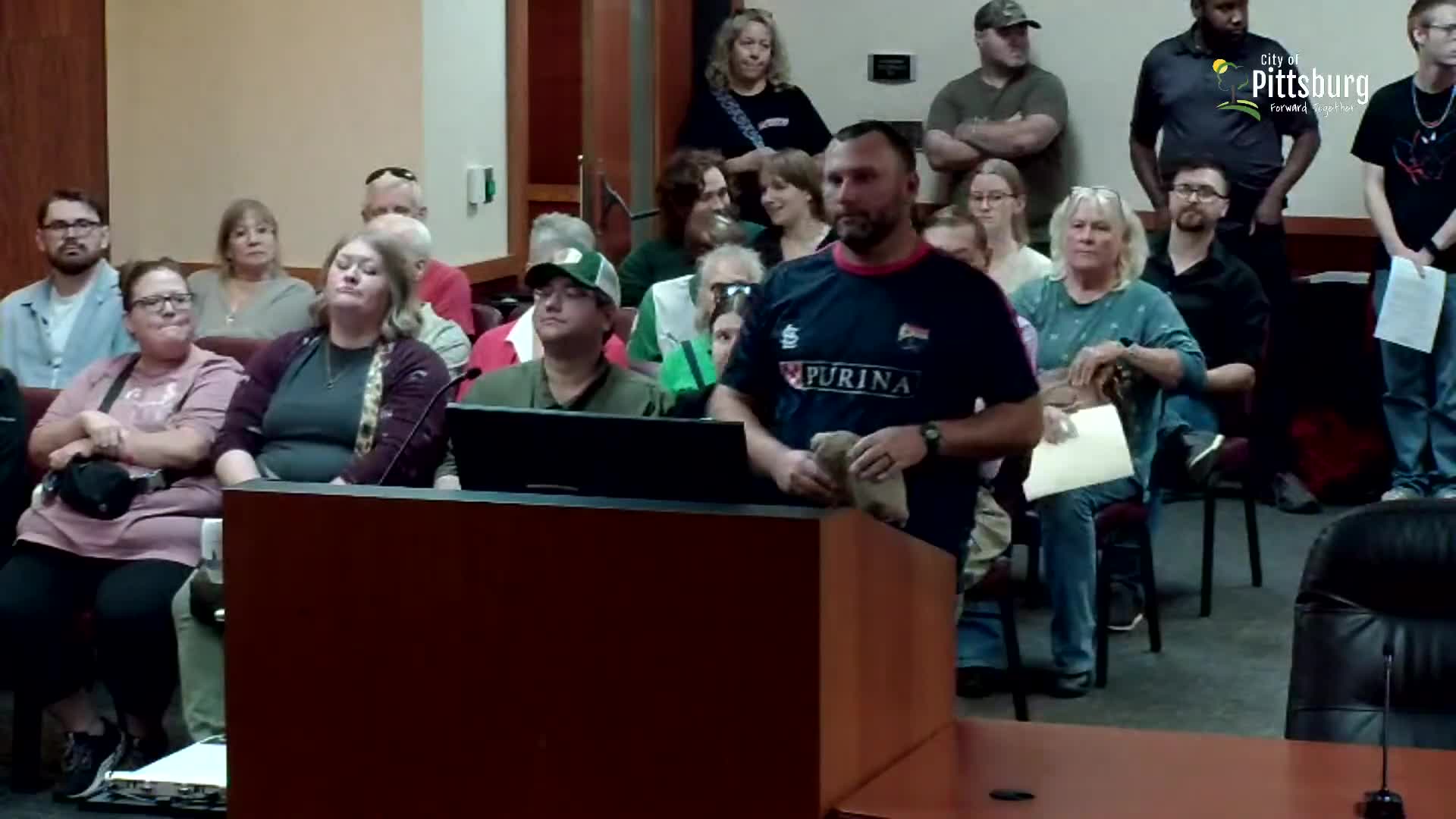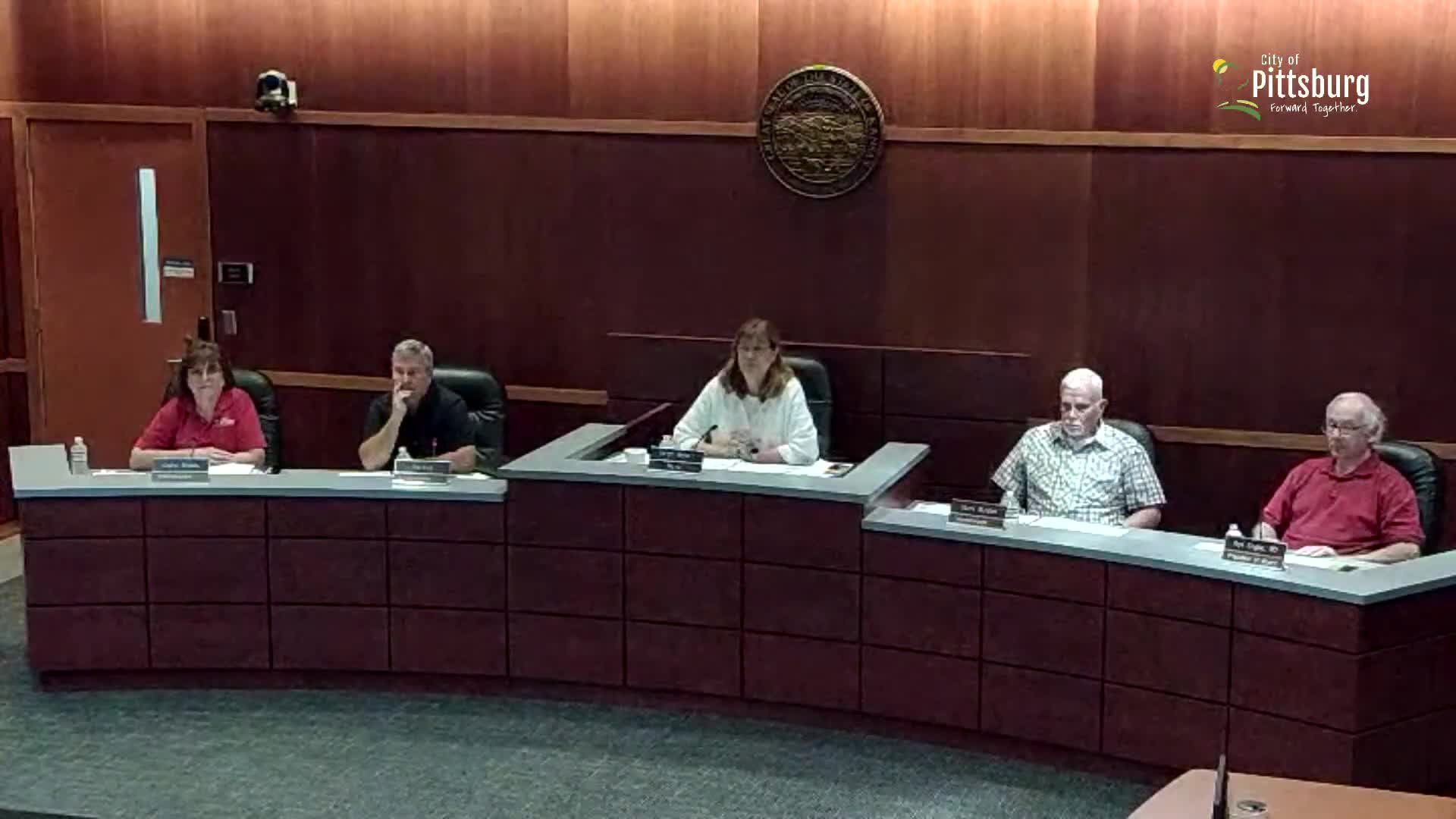Article not found
This article is no longer available. But don't worry—we've gathered other articles that discuss the same topic.

Pittsburg commission approves 2026 budget, votes to exceed Kansas revenue-neutral rate

Grandmother urges action after child sexual assault investigation; commissioners pledge follow-up

Residents press Pittsburg leaders for public soccer fields and recreation space

